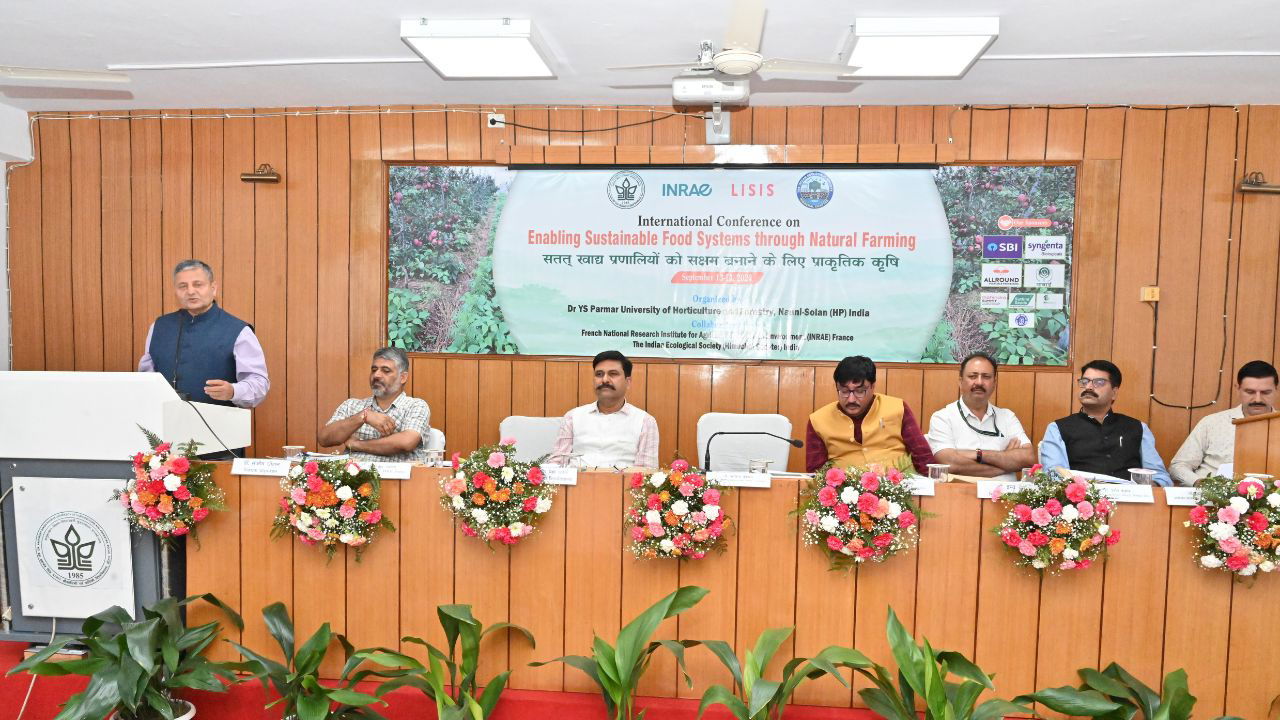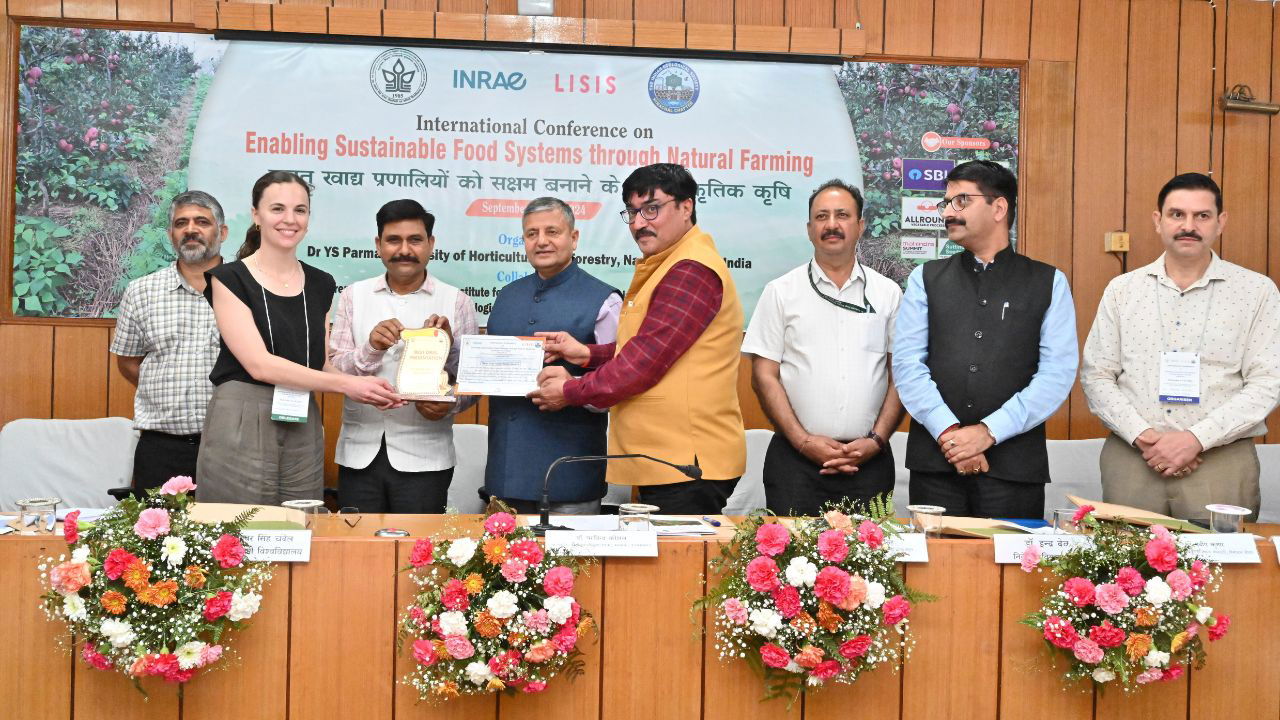
A series of forward-looking recommendations were presented at the two-day International Conference on Enabling Sustainable Food Systems through Natural Farming, which was organized by the Dr. YS Parmar University of Horticulture and Forestry (UHF), Nauni. In association with the Himachal Chapter of the Indian Ecological Society and the National Research Institute for Agriculture, Food and the Environment (INRAE), the event brought together scientists, farmers, and business professionals from India, France, Serbia, the UK, Mauritius, Uzbekistan, and Nepal.
In his valedictory address, Dr. Parvinder Kaushal, vice chancellor of the Uttarakhand University of Horticulture and Forestry, Bharsar, emphasized the value of natural farming for nutritional security as well as the role that business and academia should play in advancing this environmentally friendly farming practise. Vice Chancellor of UHF Prof. Rajeshwar Singh Chandel emphasized the university's work in creating a sustainable food system foundation for natural farming. He emphasized how natural farming lowers carbon footprints and improves the quality of the land, air, and water, all of which have a good impact on consumer health.
Prof. Allison Loconto, Deputy Director at LISIS, France, shared insights from the ACROPICS project, expressing optimism that sustainable practices from various countries, including India, could be replicated globally. Dr. Rajbir Singh, Additional Director General at ICAR, emphasized natural farming’s potential in mitigating climate change and detailed ICAR’s initiatives to promote natural farming through its 732 Krishi Vigyan Kendras. Discussions on innovations in sustainable food systems underscored the role of IoT technology and farm typology frameworks in enhancing Integrated Farming Systems. These technologies offer sustainable solutions to challenges like land fragmentation and climate vulnerability, thereby improving food security, resilience, and farm productivity.
Panel discussions revealed a consensus on the need for collaborative efforts to achieve a pesticide-free agricultural system. Experts pointed out that both innovative research and systemic changes involving diverse stakeholders are crucial for this goal. The ASIRPA TR method, discussed during the Innovations in Sustainable Food Systems session, was highlighted as a transformative approach that clarifies goals, refines partnerships, and fosters proactive strategies for impactful change.

A panel discussion on the roles of academia, industry, and farmers in upscaling agroecological practices highlighted several key points. Dr. Manish Kumar, Dean COH Nauni, emphasized the importance of recognizing local crop diversity and traditional knowledge. Dr. Yashwant Patil from SYNGENTA discussed the industry’s role in developing bio-stimulants, bio-fertilizers, and bio-fungicides. Sujit Kumar Chakrabarty from Prakritik Krishi Tantr LLP, Pune, advocated for integrating Krishi Panchang into agricultural curricula.
Umendra Dutt from Kheti Virasat Mission Punjab stressed the need for broader food security dialogues beyond rice and wheat crops. Progressive apple grower Jittu Chauhan and farmer Jiwan Singh Rana both highlighted the importance of online education and successful farmer involvement in training new farmers. Dr. RC Aggarwal, DDG Education, called for integrating mobile application-based RAWE programs to enhance student-farmer engagement.
The conference concluded with a panel discussion on furthering innovations in natural farming for food sustenance and natural resource management. Dr. Bruno Dorin, Senior Economist at CIRAD, France, presented insights on future scenarios for Andhra Pradesh. Recommendations included the potential for natural farming to significantly improve food quality, create employment for 5 million farmers, and reduce unemployment from 30% to 7%. Dr. Kapil Shah from Jatan Trust emphasized the need for measuring yield based on agricultural inputs, while Dr. Alizee Guimbeau from Saint Aubin Group, Mauritius, called for educational initiatives to reduce insecticide use in Mauritius.
The conference set the stage for meaningful advancements in natural farming practices, paving the way for enhanced sustainability, food security, and environmental stewardship.
















